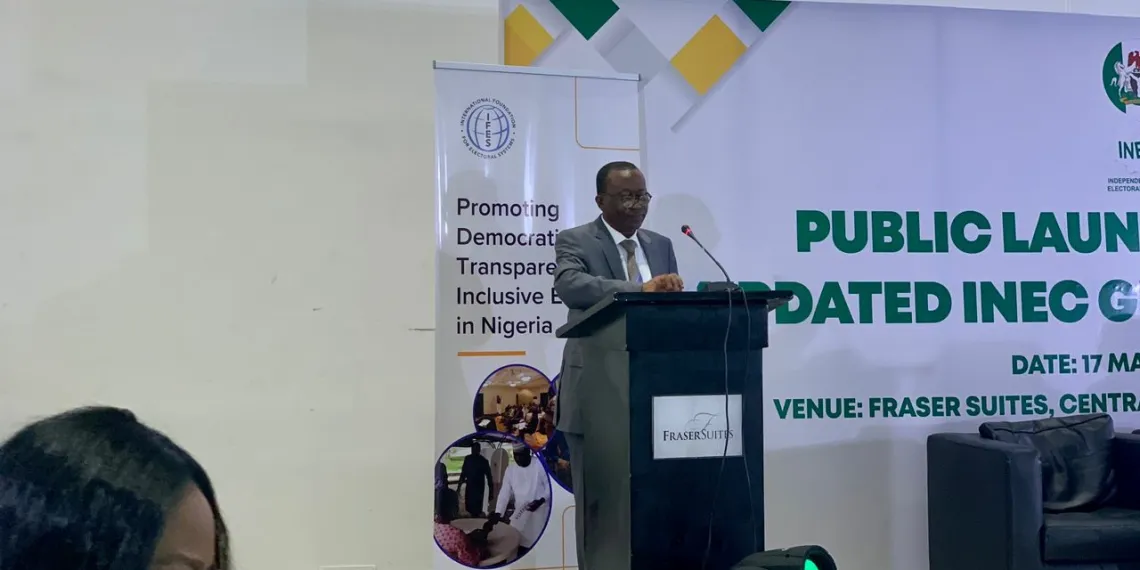The Independent National Electoral Commission (INEC) on Tuesday launched an updated gender policy in Abuja.
The policy, according to May Agbamuche-Mbu, INEC’s National Commissioner and Chairperson, Legal Services Clearance and Complaints Committee (LSCCC), is expected to foster gender balance in the commission and to stimulate concerned parties in electoral processes to do the same.
She noted in her keynote address, that gender is fundamental to any democracy, adding that “any perceived imbalance in representation or participation by any segment of society in a democracy undermines the core democratic principles of equity, equality and fairness.”
She also said that gender-blind approaches for any organisation are harmful development practices as it incorporates biases in favour of existing gender relations and therefore, tend to exclude women.
According to Ms Agbamuche-Mbu, the commission is committed to facilitating an electoral process that is both gender-responsive and a reference point as an election management body of the highest standard.
‘Gender equity, empowerment, priority’
“The commission sees the issues of gender equality and women’s empowerment as a priority agenda,” she said.
The objectives of the gender policy include: ensuring INEC policies, plans, process and operations are gender-responsive; encouraging gender equality and balance within political parties, especially in the identification of candidates in line with the provisions of their statutes.
It also includes increasing budgetary provisions and mobilising partners to effectively provide funding for sensitive actions within their purview; supporting an enabling legislative environment to achieve gender equality and bridging gaps in political representation in elective posts at all electoral levels.
INEC’s National Commissioner and Chairman, outreach and partnership committee (OPC), Kunle Ajayi, representing the commission’s chairman, said the policy’s blueprint is meant to impact on greater women’s participation in the electoral space.
“The commission has always placed priority on women political empowerment through its multi-sectoral approaches and actions to make gender equity and balance in the political process,” Mr Ajayi said.
He noted that the Gender Policy is guided by the National Gender Policy of 2006 and other regional and international instruments, to which Nigeria is a signatory.
Esther Mshelia, a consultant on the gender policy, discussing key highlights of the revised policy, said the goal of the policy is to contribute towards building INEC as an election management body that is committed to gender-sensitive free, fair, credible as well as inclusive elections.
She noted that implementing the policy will enable INEC’s gender commitment to be translated into concrete and measurable results that address and help reverse gender exclusion and discrimination both internally and externally.
The Country Director International Foundation for Electoral Systems (IFES), Serah Jah, said the launch of the revised policy has set the tone for increased women’s engagement in Nigeria’s politics.
IFES is a key partner in the preparation and launch of the commission’s revised gender policy.
Ms Mshelia encouraged civil society organisations to engage the document to hold INEC accountable.


